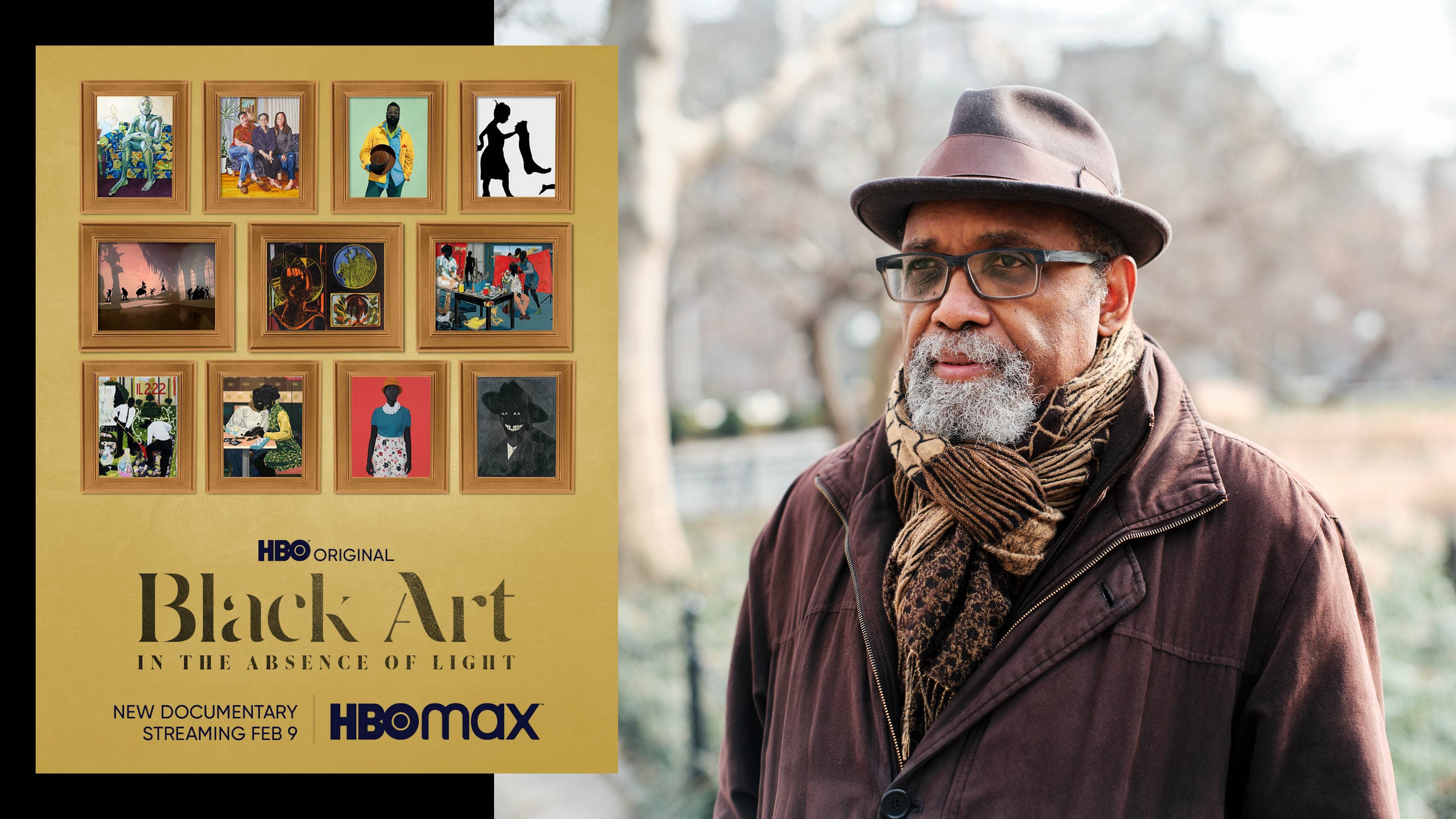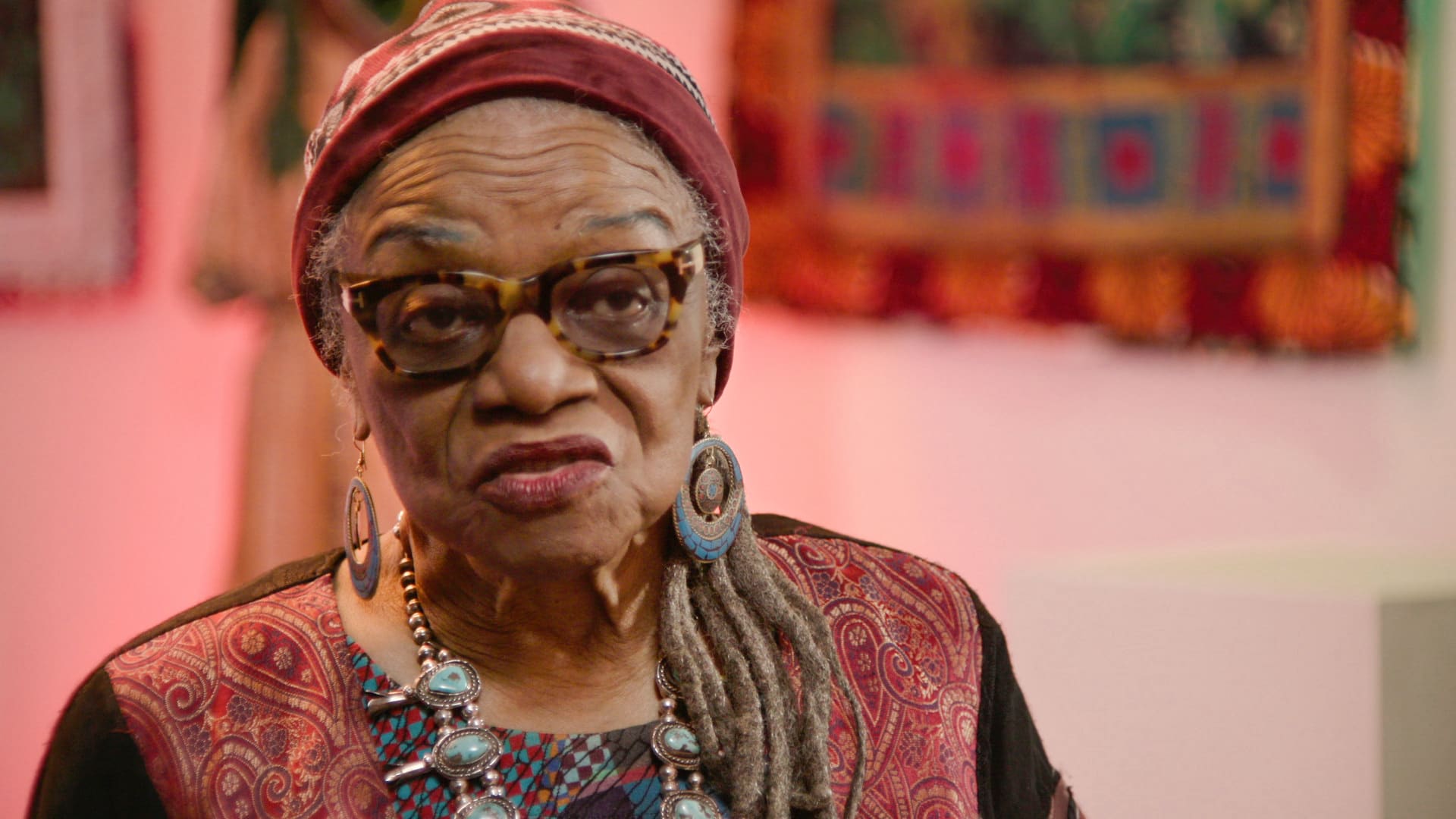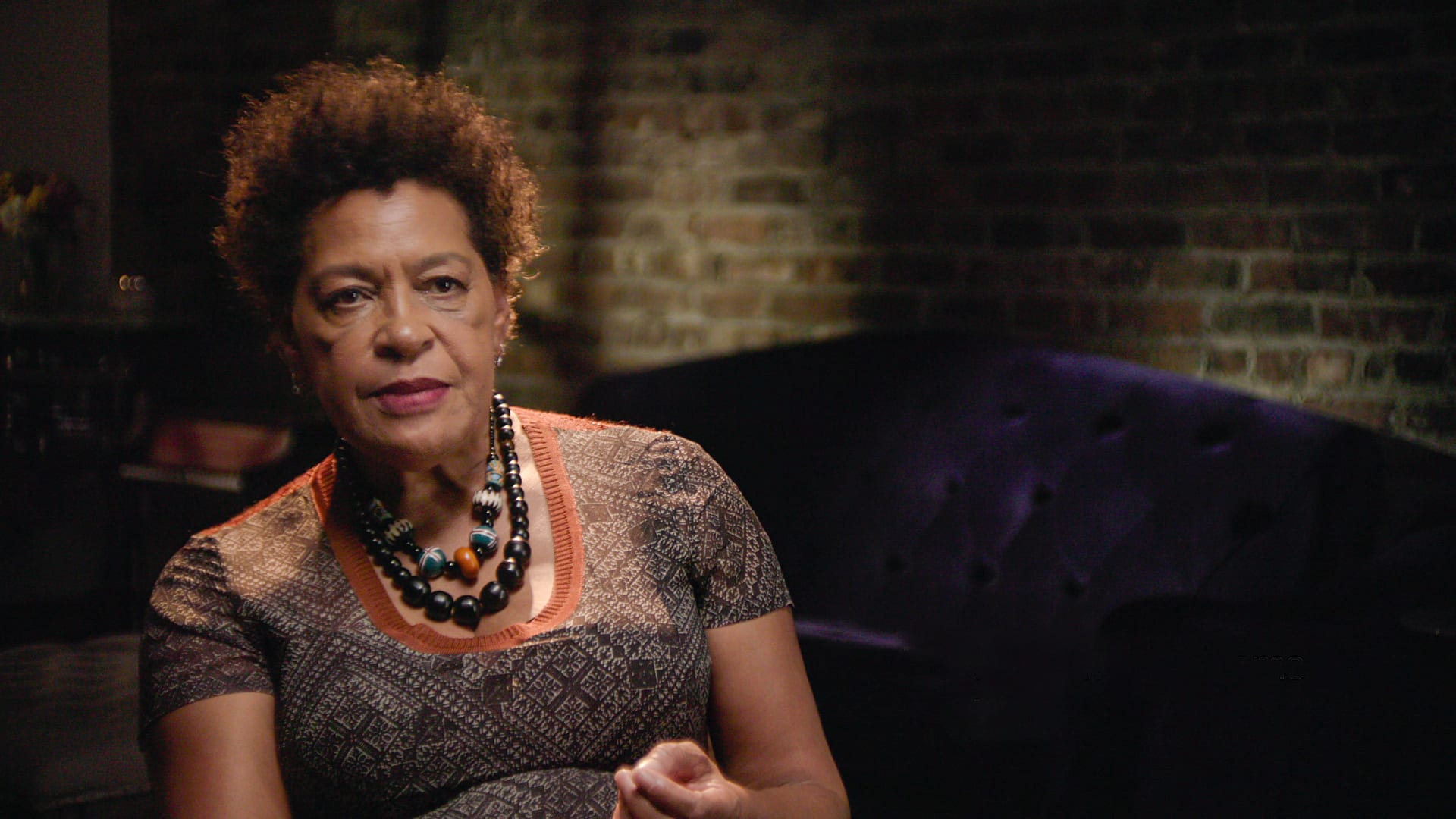
Black Art: In the Absence of Light, the latest acclaimed work by filmmaker Sam Pollard, is now available on HBO’s platforms.
Following the release of his feature documentaries Black Art: In the Absence of Light and MLK/FBI, both of which premiered in the past several weeks, award-winning director, editor and producer Sam Pollard (faculty, MFA Social Documentary Film) is one of the most celebrated filmmakers of the moment and likely on the verge of his second Oscar nomination (his first, shared with Spike Lee, arrived in 1997, for editing and producing Lee’s documentary 4 Little Girls).
Pollard’s career and his dedication to examining the Black experience in America is immense—The New York Times recently described his as a “quietly monumental filmmaking career.” His filmography spans five decades. He started working as an assistant on the seminal 1973 vampire blaxploitation film Ganja and Hess, then worked his way up as an in-demand editor, making his mark on a string of Spike Lee’s noted 1990s work, including Mo’ Better Blues, Jungle Fever and Clockers, to name a few.

Pollard has been nominated for seven Emmys and has won the award three times: for his work on Amy Rice and Alicia Sams’ By the People: The Election of Barack Obama and for his producing and editing work on Spike Lee’s When the Levees Broke: A Requiem in Four Acts. He won the George Foster Peabody award for the same dual role on Lee’s follow-up Katrina doc, If God Is Willing and da Creek Don’t Rise (2010). The limited-series documentary Atlanta’s Missing and Murdered: The Lost Children, which Pollard co-produced and co-directed, along with (among others) MFA Social Documentary Film Chair Maro Chermayeff, is also a multiple award winner, earning plaudits from the NAACP, the Independent Spirit Awards and the International Documentary Association (IDA). The IDA also recently awarded Pollard with its lifetime achievement award. With Black Art and MLK/FBI, the plaudits and offers aren’t likely to stop anytime soon.
“The phone has been ringing off the hook,” Pollard admits. “I’ve been getting calls every week about projects.”
A vital and illuminating introduction to the work of some of the foremost African American artists, Black Art is currently available on-demand on HBO and HBO Max. (To read our earlier piece on MLK/FBI, click here.) The documentary is a compelling mix of the past and the present, and inspired by the late artist and curator David Driskell’s landmark 1970s exhibition, “Two Centuries of Black American Art.” Featured artists include Faith Ringgold, Fred Wilson and Carrie Mae Weems—all of whom have taught at SVA (Weems was also the College’s 2016 Commencement speaker)—as well as Jordan Casteel, Theaster Gates, Glenn Ligon, Kerry James Marshall, Richard Mayhew, Betye Saar, Amy Sherald, Hank Willis Thomas, Kara Walker, Kehinde Wiley, and more.

“We thought it was important to look at 21st-century contemporary artists,” Pollard says. “We wanted to reframe it as contemporary African American artists and their work and the legacy that they’re carrying on from ‘Two Centuries’ and [artists who] had different approaches to their art and different approaches to the idea of creation.”
Black Art devotes some of its running time to Black art collectors and those trying to preserve its heritage. One of them, notably, is Kasseem Dean, a.k.a. Swizz Beatz, the musician, DJ, rapper and record producer who has created the Dean Collection space (he and his wife, singer-songwriter Alicia Keys, also plan on opening a performing arts center in Macedon, New York).
“One of the reasons that we were so attracted to Swizz Beatz is he’s contemporary; he’s hip, the young audience would probably understand who he is and gravitate toward him,” Pollard says. “And knowing that people like him, Sean Puffy Combs, Jay-Z and Beyonce are collecting art, I think would be an opportunity—a window to open up to younger people to sort of say, ‘Let’s go to these museums.’ It gives people an opportunity to see that people of their generation—what I call the hip-hop generation—are into artwork.”

Artist Faith Ringgold in Black Art: In the Absence of Light (2021), directed by Sam Pollard.

Artist Carrie Mae Weems in Black Art: In the Absence of Light (2021), directed by Sam Pollard.
Teaching has invigorated Pollard throughout the years, and he characterizes it as both a moral responsibility and an ongoing dialogue, always informing his own work. “It’s important to give, to give back. And that’s why I love teaching so much,” he says. “The other thing that’s enriching about teaching is that sometimes when I’m watching some of these students do first films and second films, I’m seeing some tremendous imaginative ideas that I get [inspired] by.”
“There’s some very smart, inspiring young people making films, now, so I love the teaching,” he continues. “It’s a give and take, that’s why I still do it after all these years.” As for that potential Oscar nomination now that MLK/FBI has made the Best Documentary Oscar shortlist? “Fingers crossed.”
In the meantime, Pollard is staying busy with his work on a voter-suppression documentary, Counting the Ballots, featuring politician and voting-rights activist Stacey Abrams.
Black Art: In The Absence Of Art is available now on HBO and HBO Max. MLK/FBI is in theaters and VOD via IFC Films.
“The American canon is not complete without it.”
#BlackArtHBO, a new documentary that illuminates the contributions that Black artists have made to American culture.
“What will my legacy be? I devoted my life to help bring about awareness for works by minority artists.” —David C. Driskell
Dr. Martin Luther King Jr. is remembered today as an American hero: a bridge-builder, a shrewd political tactician, and a moral leader. Yet throughout his history-altering political career, he was often treated by U.S. intelligence and law enforcement agencies like an enemy of the state.

